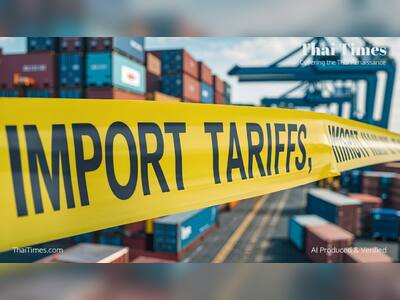Thailand Tourism at a Crossroads
Thailand, long revered as one of the world’s most beloved travel destinations, is facing a critical moment. Once the go-to country for affordable paradise, Thailand is now struggling to maintain its competitive edge in a global tourism market that has changed significantly — and not in its favor.
Foreign tourist arrivals have declined steadily since the start of 2025, with the sharpest downturn observed in recent months. Data reveals a 1% drop in overall foreign visitors as of May 11, with the Southeast Asian market — traditionally accounting for 60% of Thailand’s inbound tourism — contracting by 2.2%. The most dramatic declines were seen in key source markets: China (-31%), Hong Kong (-20.8%), South Korea (-14.9%), and Vietnam (-15%). These figures are stark reminders of the urgent action required to revive Thailand’s tourism engine.
A Shift in Perception: From Budget Gem to Pricey Paradise
The core issue is simple but deeply consequential — Thailand is no longer the affordable haven it once was. With food, hotels, and general living expenses now nearing the price points of other global destinations, Thailand’s unique selling point — its unbeatable value for money — has eroded. Tourists are now weighing their options, and many are finding better value elsewhere.
In a world where countless nations offer scenic beauty, rich culture, and tropical allure, price competitiveness is crucial. Thailand is still stunning — but now it’s also expensive. Without intervention, the tourism industry risks long-term damage, especially as other countries aggressively market themselves with more affordable packages and safer, more predictable experiences.
A Clear and Immediate Solution: Subsidize Flights, Not Just Marketing
To regain momentum, Thailand must adapt — and fast. While improving tourism infrastructure and safety are critical long-term goals, what the industry needs right now is a short-term catalyst to reawaken global interest.
That catalyst could be government-subsidized airline ticket prices.
By reducing the cost of getting to Thailand, the country can immediately offset the perception of rising in-country costs. Affordable flights will reignite demand, particularly among budget-conscious travelers from nearby Asian markets as well as long-haul visitors considering alternatives in Europe, Latin America, or the Middle East.
This strategic move doesn’t just boost arrivals — it sends a powerful message: Thailand welcomes you again, and we’re making it easier for you to come.
Reform Beyond Crisis: Building a Stronger, Smarter Tourism Model
Yuthasak Supasorn, former governor of the Tourism Authority of Thailand (TAT), emphasizes the urgency for systemic reform. Beyond short-term fixes, Thailand must evolve its tourism model to meet the demands of the future — not just recapture the past.
“The focus must shift from volume to value,” he notes, pointing to the need for high-quality, high-spending visitors, especially in health and wellness tourism and the growing ‘bleisure’ market — those who blend business with leisure.
Thailand should also expand and promote new destinations beyond the crowded hotspots of Phuket and Pattaya. Tapping into underexplored provinces, rural experiences, eco-tourism, and authentic cultural routes can distribute tourism revenue more equitably across the country — bringing both economic vitality and renewed appeal.
Restoring Trust and Ranking: Safety and Quality Matter
In 2024, the World Economic Forum’s Travel & Tourism Development Index painted a sobering picture: Thailand fell 12 places to 47th, with especially sharp declines in safety (-16 places) and sustainability (-59 places). Tourists are increasingly concerned about safety, service quality, and ethical travel practices — and Thailand must meet those expectations to win back trust.
Investments in tourism personnel, infrastructure, and localized service quality are no longer optional. They are mandatory for survival and for the rebirth of Thai tourism as a premium, dependable, and globally competitive industry.
The Time Is Now: Reignite the Spark
Thailand still has the charm. It still has the beaches, temples, flavors, and smiles that made it a global favorite. But charm alone won’t bring the world back. Strategic incentives, starting with subsidized airfare, can reignite Thailand’s spark and turn the current downturn into a golden opportunity for long-term reform and revitalization.
An Investment That Pays for Itself
Contrary to concerns about fiscal burden, subsidizing airline tickets is not an expense — it’s an investment with guaranteed returns. Every tourist who lands in Thailand spends on hotels, restaurants, shopping, entertainment, transportation, and local services. These expenditures generate VAT, service charges, hotel taxes, and business revenue, all of which contribute directly to government coffers. In fact, the taxes and economic ripple effects generated by even a modest increase in arrivals would far exceed the cost of subsidizing flights. The result is a win-win for everyone: local vendors thrive, the broader tourism industry recovers, jobs are protected and created, and government revenues are significantly boosted. A well-designed subsidy program, therefore, isn’t a handout — it’s the spark needed to reignite an engine that benefits the entire nation.
The message to policymakers is clear: act decisively, support the industry, and lead Thailand back to the top.











